CIA Sponsored Terror, Civil Liberties, Human Rights, NSA Spying, Surveillance, Targeting Muslims, War Resister
Podcast: Play in new window | Download
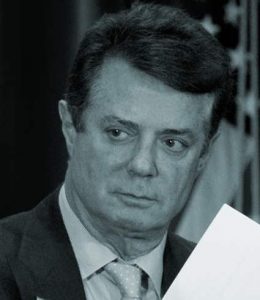
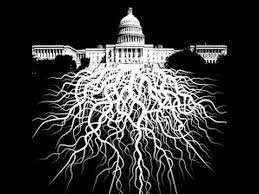
Special Prosecutor Mueller Indictments
Paul Manafort, who had been Donald Trump’s campaign manager, was indicted last week by special prosecutor Mueller for 12 counts of money laundering involving at least $18 million, setting up a secret overseas bank accounts through which $75 million flowed, lying to federal authorities and operating as an unregistered foreign agent for the president of the Ukraine, tax evasion, and conspiracy. Also indicted was his colleague Rick Gates.
Manafort was a Washington insider. He graduated from Georgetown Law School and went on to work for Gerald Ford and Ronald Reagan. He then became, by his own description, an influence peddler. He was a political adviser to the vicious dictatorships of Marcos in the Philippines and Mobuto in Zaire helping them avoid trouble with the United States. He made millions of dollars advising the elected head of the government of Ukraine before he was overthrown in a coup approved and supported by the United States, in particular Secretary of State Hillary Clinton who held that position under the Obama administration before she ran for president.
Along with the indictments, it was disclosed that George Papadopoulos, a former volunteer adviser to Trump during his campaign, had pled guilty to lying to the FBI about having ties with the Russians and was cooperating with the prosecution. He had urged Trump to meet with Russian officials.
Guest – Ray McGovern, an alumnus of Fordham and was a high-ranking CIA analyst for 27 years. His expertise was Russia and he had one on one briefings daily with President George Bush. He broke with the government under George W. Bush over the cooked intelligence used to rationalize America’s illegal war of aggression against Iraq and helped form the organization Veteran Intelligence Professionals for Sanity. His group issued a memorandum to President Obama which demonstrated that the Russians did not hack into the computers of the Democratic Party or Hillary Clinton and did not therefore influence the American election. http://raymcgovern.com/
—-
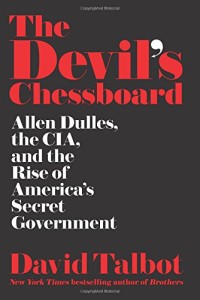
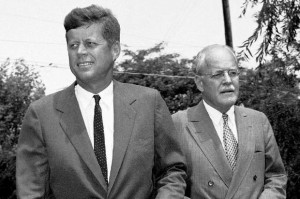
The Devil’s Chessboard: Allen Dulles, the CIA, and the Rise of America’s Secret Government
The assassination of President John Fitzgerald Kennedy on November 22, 1963, 54 years ago, was a turning point in American and world history. The official story has been put forward in the Warren Commission Report. It stated that Lee Harvey Oswald was the lone assassin and that there was no conspiracy. The official story has been widely debunked: it is not believed by some 60% of the American people.
Oliver Stone’s 1991 movie JFK led to the reopening of the investigation by a Committee of the US House of Representatives. The committee concluded that there was a conspiracy. They passed a law, signed in 1992 by President George HW Bush, which called for the release of all remaining intelligence files on the assassination by October 26, 2017. Last week some of the remaining documents were released. Those documents must be released within six months unless President Trump decides not to. The intelligence agencies have a say in what further documents will be released but it is President Trump’s decision. It is not believed that the release of the documents will contradict the official story that Lee Harvey Oswald was the loan assassin and there was no conspiracy.
James R. Douglas wrote the definitive book on the Kennedy assassination, demonstrating conclusively that was the work of the CIA. Why? Because the intelligence agency wanted to stop Kennedy from withdrawing American troops from the Vietnam war and he wanted and was working towards a peaceful resolution of the cold war with respect to American policy towards both the Soviet Union and Cuba.
Guest – David Talbot, the author of the New York Times bestseller Brothers: The Hidden History of the Kennedy Years and the acclaimed national bestseller Season of the Witch: Enchantment, Terror, and Deliverance in the City of Love. He is the founder and former editor in chief of Salon, and was a senior editor at Mother Jones and the features editor at the San Francisco Examiner. He has written for The New Yorker, Rolling Stone, Time, The Guardian, and other major publications. Talbot lives in San Francisco, California.
——————————————————-
Academic Freedom, CIA Sponsored Terror, Civil Liberties, Climate Change, Crony Capitalism, Cuba, Habeas Corpus, Human Rights, NSA Spying, Truth to Power, War Resister
Podcast: Play in new window | Download
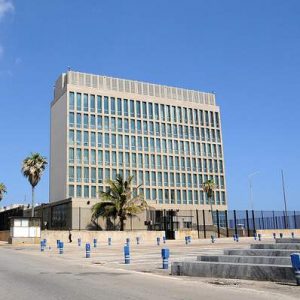
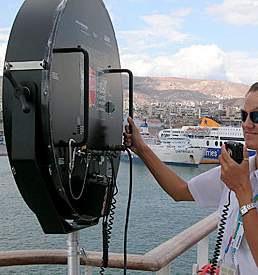
Cuban US Embassy Sonic Weapons Scare
The Trump administration is considering closing the recently reopened US Embassy in Havana after several unexplained incidents that allegedly hurt American diplomats in Cuba. Some lawmakers are calling for the ouster of all Cuban diplomats from the US in addition to the 15 they’ve kicked out of the country. Its a move that would have significant diplomatic implications.
US Secretary of State Rex Tillerson made these suggestions recently. His comments were the strongest indication yet that the US might mount a major diplomatic response, potentially jeopardizing the historic restart of relations between the Cuba and US governments. The two reopened embassies in Washington and Havana in 2015 after roughly a half-century of estrangement.
Of the 21 medically confirmed US victims, some have permanent hearing loss or concussions while others have suffered nausea, headaches and ear-ringing. Some are having problems with concentration or common word recall.
Some victims felt vibrations or heard loud sounds mysteriously audible in only parts of rooms, leading investigators to consider the possibility of a sonic attack. Others heard nothing but later developed symptoms.
The US State Department has emphasized that the US still does not know what has occurred. Cuba has denied any involvement and has said that it wants to help the US resolve the matter.
Investigators have explored the possibility of an electromagnetic weapon, or an advanced spying operation gone awry. The US has not ruled out that a third country or even a rogue faction of Cuba’s national security services may be involved.
Guest – Sandra Levinson, President and Executive Director of the Center for Cuban Studies. She was one of the Center’s founders in 1972. In 1991 Levinson spearheaded a lawsuit against the U.S. Treasury Department which resulted in legalizing the importation of original Cuban art. She is currently directing works at the Cuban Art Space, which she founded in 1999, to properly house and archive the thousands of posters, photographs and artworks which the Center has collected in the past 42 years.
Contact the Center for Cuban Studies at 212.242.0559.
—-
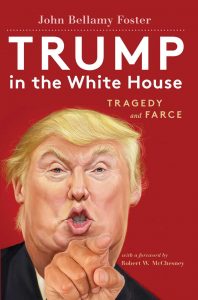
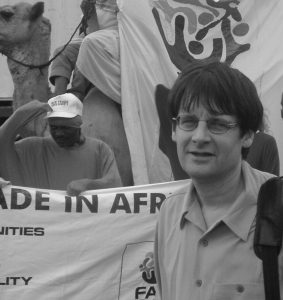
Trump in the White House: Tragedy and Farce
The great issues of our times are the return of fascism to the United States and Europe, climate change, and the stagnation of the world capitalist economy. These great issues are pressing and interconnected.
We used to think that the experience of World War II guaranteed that no politician would ever advocate the ideas of fascism.
But the election of Donald Trump a year ago has caused a serious reconsideration of fascism and it’s relationship to capitalism and to democracy.
The neoliberals paved the way for Trump. Now he and the forces aligned with him have put our democratic institutions under attack in order to protect the rule of the wealthy. The attacks include the right to vote, labor unions, public education, an independent news media, independent public universities, the privatization of much of traditional governmental functions and making it almost impossible to launch a new political party.
The election of Trump is a political development that for concrete sociological reasons allows us to see it for what it is, as a type of neo-fascism. Only by identifying the phenomena correctly can we effectively fight it.
Jack London wrote a century ago in his famous book The Iron Heel that “There is a shadow of something colossal and menacing that even now is beginning to fall across the land. Call it the shadow of an oligarchy, if you will; it is the nearest I dare approximate it. What is nature may be I refuse to imagine. But what I want to say was this: You are in a perilous position.”
Guest – John Bellamy Foster is editor of Monthly Review and professor of sociology at the University of Oregon. He has written widely on political economy and has established a reputation as a major environmental sociologist. He is the author of Marx’s Ecology: Materialism and Nature (2000), The Great Financial Crisis: Causes and Consequences (with Fred Magdoff, 2009), The Ecological Rift: Capitalism’s War on the Earth (with Brett Clark and Richard York, 2010), and The Theory of Monopoly Capitalism: An Elaboration of Marxian Political Economy (New Edition, 2014), among many others.
CIA Sponsored Terror, Civil Liberties, Criminalizing Dissent, Human Rights, Political Prisoner, Prison Industry, Supreme Court, Targeting Muslims, Torture, Truth to Power, War Resister
Podcast: Play in new window | Download
Updates:
- Co-host Attorney Heidi Boghosian Discusses Robert “Sugar Bear” Lark Case
- Government Targeting Black Resistance Groups
—-

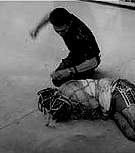
Victory In Al Shimari v CACI
President Trump told us during the campaign that he was in favor of torture because “it works.“ The Center for Constitutional Rights recently won a significant round in a case against a private military contractor, CACI who had tortured three of its clients at the infamous Abu Graib prison in Iraq in 2003 and 2004.
When he was president of the Center for Constitutional Rights, Michael Ratner maintained that if the torturers were not prosecuted, the practice of torture would be repeated. In fact none of the architects were held accountable in court. That is why the this recent procedural victory by CCR, in the case of Al Shimari is so important.
Guest – Attorney Katherine Gallagher is a Senior Staff Attorney at the Center for Constitutional Rights. She works on universal jurisdiction and international criminal law cases involving U.S. and foreign officials and torture and other war crimes, and cases involving private military corporations and torture at Abu Ghraib. Her major cases include Al Shimari v. CACI, the international U.S. torture accountability cases, and Survivors Network of those Abused by Priests (SNAP) v. Vatican, seeking accountability for the crimes against humanity of sexual violence by clergy and cover-up.
—-
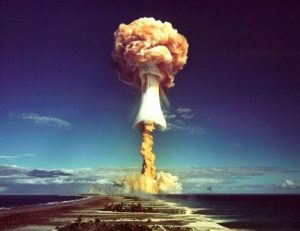
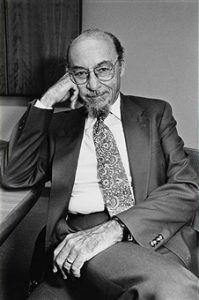
International Association of Lawyers Against Nuclear Arms: North Korea
Not since the Cuban missile crisis of 1962, 55 years ago, has the prospect of nuclear war seemed so frightening. President Donald Trump, who alone can commence a nuclear attack, has threatened North Korea with “fire and fury.“ North Korea has a population of 25 million people.
Gabriel Sherman writing recently in the magazine Vanity Fair said that the situation with Trump has gotten so out of control that Trump’s Chief of Staff, General John Kelly, and his Secretary of Defense, General Jim Mattis, have discussed ways to stop Trump should he order a nuclear attack.
Obviously, the solution to winding down the escalating confrontation needs to be one of diplomacy. But when Secretary of State, Rex Tillerson, the chief diplomat in America, attempted to do just that President Trump said publicly that “you are wasting your time.“
Guest – Peter Weiss, distinguished international lawyer and President Emeritus of the International Association of Lawyers Against Nuclear Arms and its US affiliate, the Lawyers Committee on Nuclear Policy. He helped draft their October 10th, 2017 statement North Korea: Solution or Disaster. Peter Weiss was a founder of the Center for Constitutional Rights and its former Vice President.
———————————-
Academic Freedom, CIA Sponsored Terror, Civil Liberties, Criminalizing Dissent, Human Rights, NSA Spying, Supreme Court, Surveillance, Truth to Power
Podcast: Play in new window | Download
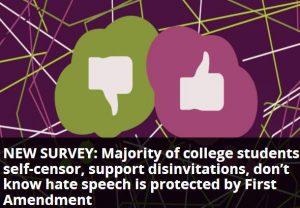
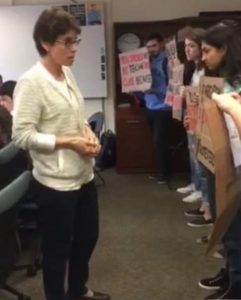
Free Speech on College Campuses
Last week an invited lawmaker was shut down form addressing Texas Southern University after protesters stormed the room calling him a racist. House Representative Briscoe Cain was asked to speak to the Thurgood Marshall School of Law by the Federalist Society about the recent legislative special session. But as he uttered a few words, he was shut down by students and then the University’s President claimed it was an unapproved event. It’s ironic that the school is named for the Supreme Court justice known for his exemplary record of protecting First Amendment rights.
Attorney General Jeff Sessions also recently spoke–uninterrupted–at Georgetown University about free speech on American college campuses. He said, “The right of free speech does not exist only to protect the ideas upon which most of us agree at a given moment in time,” and encouraged students to: “make your voices heard, [and] to defend the rights of others to do the same.” Sessions joins a bipartisan chorus of public officials expressing support for free speech in academic institutions.
This summer, Senators Bernie Sanders and Mitch McConnell condemned efforts to shut down different viewpoints at schools. And in 2015, Barack Obama more than once defended the importance of free speech on campus. “I don’t agree that you, when you become students at colleges, have to be coddled and protected from different points of view,” he said at a September 2015 town hall.
The recent Sessions talk comes amid an uptick (1) in efforts to dis-invite controversial speakers of all ideological persuasions, (2) use of bias response teams to monitor unpopular speech, and (3) in unprecedented violence aimed at silencing off-campus speakers.
These are some of the findings from a recent study produced by The Foundation for Individual Rights in Education. The comprehensive survey on students’ attitudes about free speech measured responses to questions about hate speech, guest speakers on campus, self-expression and reactions to expression of other students.
Guest –Will Creeley, Senior Vice President of Legal and Public Advocacy at the Foundation for Individual Rights in Education. FIRE is a nonpartisan, nonprofit organization dedicated to defending liberty, freedom of speech, due process, academic freedom, legal equality, and freedom of conscience on America’s college campuses.
—-
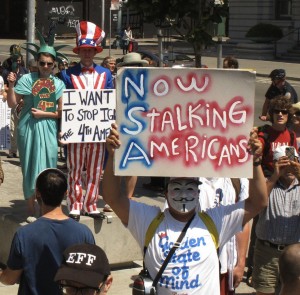

Tech Freedom on USA Liberty Act of 2017
Americans whose data is inadvertently swept up while the government monitors foreign intelligence, risk having their information used for non-national-security related purposes.
Two weeks ago draft legislation was introduced to address this, but a broad coalition of civil liberties organizations say it doesn’t go far enough. They are calling on the House to close the so-called “back-door search” loophole by requiring a warrant based on probable cause for any search of information about U.S. citizens and residents.
Similar to the USA Freedom Act of 2015, which ended the practice of bulk surveillance of American citizens under Section 215 of the 2001 PATRIOT Act, the current USA Liberty Act of 2017 would overhaul surveillance that is supposed to be limited to targets outside the U.S. but actually affects Americans. Section 702 expires at the end of December, which is why Congress is reassessing the program.
Currently, FISA surveillance is conducted under a warrant issued annually by the FISA court for a list of foreign intelligence targets. But law enforcement can access, and can use, Americans’ communications swept up in FISA surveillance with no warrant at all. This is even though U.S. persons’ communications require constitutional protections not afforded to foreigners.
The USA Liberty Act adds a warrant-like ‘probable cause’ requirement before law enforcement can search the database, but also includes a sweeping, vague exception for “foreign intelligence information” and does not stop law enforcement from using that information for criminal prosecutions. This is a glaring violation of the Fourth Amendment.
Guest – Austin Carson, Executive Director of TechFreedom joins us to talk about this legislation, and the state of surveillance generally. Tech Freedom is a non-profit, non-partisan technology think tank launched in 2011 that focuses on issues of Internet freedom and technological progress.
————————————————–
CIA Sponsored Terror, Civil Liberties, Climate Change, Human Rights, Political Prisoner, Truth to Power, War Resister
Podcast: Play in new window | Download
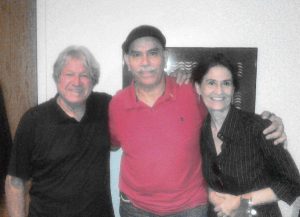
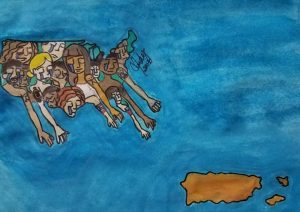
Puerto Rico Disaster Recovery, The Jones Act And Federal Aid
The devastation to Puerto Rico from Hurricane Maria has been likened to the impact of an atomic bomb, destroying the U.S. territory, and leaving nearly 3.5 million U.S citizens without power, limited access to food and water, and a collapsed infrastructure. Donald Trump was quick to blame the island nation for its problems, even highlighting its financial debt to Wall Street.
Puerto Rico has a history of struggling for federal aid for natural disasters contrasted with those on the mainland. The White House response to much-needed funding post-Maria is to wait for a “full assessment” and “fact-finding” process. Early reinforcements from the Federal Emergency Management Agency (FEMA) are appalling, if nonexistent: Diesel fuel for generators is scarce. Towns outside metro areas are unreachable. Hospitals can’t treat patients. Streets are flooded, looting is rampant, highways destroyed. The National Guard, FEMA, Red Cross or federal vehicle have yet to be spotted on the island. None of this is new.
In 1989, when Hurricane Hugo hit South Carolina, Puerto Rico and the USVI, the elder President Bush was criticized for not responding quickly enough. More relief for the Caribbean was added to a bill initially designed to address earthquake damage in California. And when Hurricane Georges pounded Puerto Rico in 1998, it took half a year for the federal government to act on a long-term plan for the island.
A central reason for this is the Jones Act, a century-old shipping law often accused of stifling the Puerto Rican economy. Among other things, the Act requires that domestic shipping be conducted by U.S.-owned, U.S.-made ships staffed by American crews. That means, for example, that all food from the mainland—and Puerto Rico imports 85 percent of what it consumes—must be brought in U.S. ships.
Nydia Velázquez, the Puerto Rico–born congresswoman who represents parts of New York City, says she will ask Congress for a one-year waiver to Jones Act requirements for the territory. That might test Washington’s willingness to change its approach to Puerto Rico and to see if Puerto Ricans’ status as citizens without full rights is really working.
Guest – Carlito Rivera, co-editor of the Old and New website, active with the Campaign to Bring Mumia Home, and a Former member of the Young Lords. CONTACT: El Maestro – Community Center and Boxing Gym in the Bronx, Puerto Rican Nationalist Party Headquarters 646-299-6507.
Since the recording of this interview, President Trump agreed to waive the Jones Act, which will temporarily lift shipping restrictions and allow the people of Puerto Rico to receive necessary aid.
—-
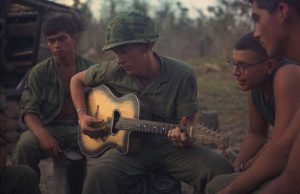
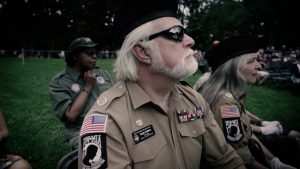
Burns and Novick: Masters of False Balancing
Ken Burns and Lisa Novick have made an influential documentary called “The Vietnam War” whose 10 episodes have been running on PBS. Burns said that his film “will inspire our country to begin to talk and think about the Vietnam war in an entirely different way.” Novak said that “we are all searching for some meaning in this terrible tragedy.”
The United States took over the war in 1954 from the defeated French who failed despite massive American support to recolonize Vietnam after World War II. The United States left Vietnam 1975 when they were forced to withdraw troops in the teeth of massive Vietnamese resistance, a huge antiwar movement at home, and the refusal of GIs in Vietnam to continue to fight.
At least 3 million Vietnamese were murdered. 58,200 American soldiers were killed. 19 million gallons of toxic defoliants, 7.5 million tons of bombs, including 400,000 tons of napalm were dropped on the Vietnamese. Without a Navy or Air Force, the Vietnamese resistance lived in tunnels or hid in the jungle.
The CIA’s infamous operative in Vietnam, Colonel Edward Lansdale, who helped install the US supported dictator Diem, quoted Robert Tabors The War of the Flea saying “there is only one means of defeating an insurgent people who will not surrender, and that is extermination. There is only one way to control a territory that harbors resistance, and that is to turn it into a desert.”
The Burns-Novik film’s opening sentence says that the war was started “in good faith by decent people out of fateful misunderstandings, American overconfidence and cold war misunderstandings.” Noam Chomsky, who came to prominence in 1967 as a critic of the war, and who was not interviewed in the film, wrote that the US “went to war in Vietnam for a very good reason. They were afraid Vietnam would be a successful model of independent development and that it would have a virus effect – if that others who may try to follow the same course.”
Guest – Jerry Lembcke, Professor Emeritus of Sociology at Holy Cross College.
Professor Lempke is recognized for work on post-Vietnam War American culture, studies of how we continue to process the war through film, literature, folklore, and of course television documentaries. He is the author and editor of many books, most notably his 1998 book “The Spitting Image: Myth, Memory and the Legacy of Vietnam”. He served as a chaplain’s assistant in Vietnam and is a member of Vietnam Veterans Against the War.
—————————————————
CIA Sponsored Terror, Civil Liberties, Habeas Corpus, Human Rights, Iran, Iraq War, Prison Industry, Surveillance, Targeting Muslims, Torture, War Resister
Podcast: Play in new window | Download
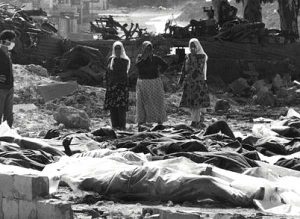

35th Anniversary of Palestinian Mass Slaughter in Lebanon Refugee Camps
This month marks the 35th anniversary of the mass slaughter of civilian Palestinians by Lebanese fascists in their Lebanon refugee camps of Sabra and Shatila. The Palestinians who lived in the camps had been driven out of their villages in the Galilee by Israel. They had lived there for hundreds of years until the Zionist colonialists expelled them in 1948. The Israeli Army aided in the 1982 slaughter. The 1982 Israeli invasion of Lebanon, which preceded the massacre, was given the greenlight by the United States. Up to 1982, the Palestine Liberation Organization, known as the PLO, had its headquarters in Beruit, Lebanon. This Israeli Army invaded Lebanon and succeeded in driving the PLO out. The United States gave written commitments to the PLO about protecting the civilian population in order to secure the PLO’s evacuation from Beruit the month before the slaughter at Sabra and Shatila camps.
Israeli Defense Minister Ariel Sharon falsely asserted that there were 2000 terrorists in the camps. US Envoy to Lebanon Morris Draper did not dispute this falsehood. Sharon told Draper that ” We will kill them. They will not be left there. You are not going to save them.” Sharon sent Lebonese fascists into the refugee camps. They silently killed hundreds of Palestinians and Lebanese, mostly women and children and old men, using knives and bayonets. The Israeli Army lit up the killing fields with flares. There was such a worldwide outcry that Israel was forced to set up a commission of inquiry. That commission found that Sharon bore “personal responsibility” for the massacre and recommended that he be dismissed from his post as Defense Minister.
The blowback from these events in Lebanon 35 years ago still echo today in the wars America is conducting in Syria and Iraq.
Guest – Rashid Khalidi, Edward Said Professor of Arab Studies at Columbia University. He is the author of “Under Siege: PLO Decision Making During the 1982 War”. and most recently “Brokers of Deceit: How the US Has Undermined Peace in the Middle East.” Professor Khalidi recently had an article on the Sabra and Shatila massacre in The Nation magazine.
—-
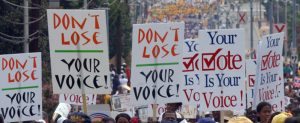
Community Votes
The Queensbridge House public housing project in Long Island City Queens is the largest such complex in the country. With more than 7,000 residents, it’s a community with little faith in civic engagement. Like other public housing communities, and low-income neighborhoods in general, poor people vote at considerably lower rates than wealthier ones. Many feel apathetic, that the system is rigged, and that their votes don’t matter.
One nonprofit in NYC is using innovative partnerships with community-based social service organizations to conduct nonpartisan voter mobilization so more underrepresented citizens participate in our democracy.
Community Votes is trying to change the culture and mindset of large nonprofit social service agencies so they integrate into their day-to-day operations civic engagement activities. These activities include promoting awareness of elections and issues and encouraging voting and other participation in federal, state, and city policy making. A few years ago Community Votes partnered with the Jacob Riis Neighborhood Settlement, a longtime provider of social services in the Queensbridge Houses, to engage in personalized messaging to mobilize voters. The results were a considerably higher rate of voter turnout in the 2014 midterm elections.
Guest – Louisa Hackett is the director of Community Votes. Louisa founded Community Votes in 2013. Through her work at Community Resource Exchange providing consulting services to New York City nonprofit organizations, she recognized the assets direct service organizations have to turn more citizens into voters.
—————————————————–






















